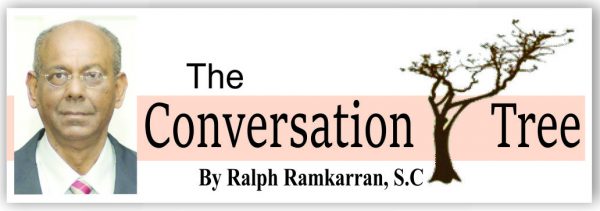
The first step after the passage of the no-confidence motion ought to have been a directive from the President to the Chair of the Elections Commission to provide a timetable for the holding of elections before the end of March, 2019. This is what the Opposition Leader, Mr. Bharrat Jagdeo, ought to have insisted on at his meeting with President Granger on January 9. Instead, the Opposition allowed itself to be ensnared in a charade of fruitless consultation with the Elections Commission. That it would have been fruitless was later signaled by a chorus that a new electoral list was needed and by a delay in the meeting. The most recent, flimsy excuses are that time is needed for the training of elections day staff and the mobilization of supplies. These can be accomplished in weeks. Existing trained staff for local government elections only need to be upgraded and supplies can be acquired by emergency procurement.
As matters stand, reports suggest that the Elections Commission did not provide a timetable for elections, as requested by representatives of the President and Leader of the Opposition. With more than four weeks having already elapsed since the no-confidence resolution, the least that could have been expected was a timetable. The Elections Commission has apparently done nothing so far and is apparently not now doing anything. It is not known if any other steps will be taken by the President and/or the Leader of the Opposition to persuade the Elections Commission to comply with its responsibilities. The Elections Commission is an independent body. But it is not independent of the Constitution. It has to let the Government know what it needs in order to comply with the Constitution and the Government is obliged to comply. This has not been done and it does not appear that it will be done anytime soon.
The unfolding drama suggests that a scenario where the Government and Elections Commission act diligently to prepare for elections is not likely to be played out. Not complying with the joint request of the President and Leader of the Opposition leads to the conclusion that the Elections Commission will continue its dilatoriness, with a wink and a nod from officialdom.
It is the right of the Government or any citizen to challenge the legality of the no-confidence resolution of the National Assembly. This has happened, the Chief Justice has heard the arguments and has fixed January 31 for decision in all the matters. Whatever appeals are undertaken, the decisions of the Chief Justice would be what is known to lawyers as a final decision. It means that all parties will be bound by those decisions when made, whatever they may be. Appeals do not affect this principle. Therefore, if the Chief Justice rules that the no-confidence resolution is lawful, the Cabinet including the President must resign and elections must be held before the end of March.
Appeals to the Court of Appeal and the CCJ do not operate to stay the decisions of the Chief Justice, if she rules that the resolution is lawful and the Cabinet must resign. If applications are made to the Chief Justice for a stay of her decisions, or later to the Court of Appeal or CCJ, they would have to consider whether it would be lawful to direct that processes provided for in the Constitution can be lawfully halted, which is what stays of the Chief Justice’s orders would mean, assuming that she rules as above stated.
If the Chief Justice rules as above, and refuses stays of her decisions, the Government may still not take meaningful steps to prepare for elections until the conclusion of all the appeals in the cases, wrongly using the pendency of the appeals as an excuse. By this time, the end of March would have come and gone. The Government can then hardly expect the cooperation of the Opposition in extending the period for the holding of elections. By being unlawfully in office after March and without an extension of time by the National Assembly for holding elections, the Government will be taking Guyana into unknown constitutional territory. Maybe it will have to seek guidance from President Kabila of the Democratic Republic of Congo, who overstayed his time by two years, as to how he did it.
If the Government holds office extra-constitutionally, the Opposition will not recognize its decisions and will boycott the National Assembly. Investment decisions by large investors will be postponed. International organizations will be treat with the Government at arms’ length. Major governments of the international community and CARICOM will pressure the Government and may also limit their cooperation. Guyana will be in political turmoil. Are a few months more in office worth the trouble? www.conversationtree.gy




